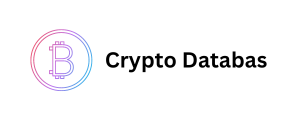What is the Euribor? First, we must clarify what the Euribor is. It is the most reference index in the country to link mortgages . The Euribor other indices that were not as effective in carrying out this real estate operation. It is essential to be clear that the Euribor will only affect you if you are going to take out a variable rate mortgage or a mix mortgage with a variable period. You will never find yourself to rate mortgages, as they are by other parameters. The name Euribor derives from the acronym Euro Interbank Rate . It is the interest rate at which banks grant short-term loans to each other. This is why it goes up and down constantly. This constant variation of the reference index is what defines the variation of the payment you must pay each month for your variable mortgage. This can be reviewed every six or twelve months, depending on what has been with the bank.
The Euribor forecasts for the second quarter of the year
At the beginning of the year, most forecasts indicat that the Euribor would reach in a short time. The reason for these forecasts was that its trend was, without a doubt, upward, closing the month of January at , February at Thailand Phone Number List and March at . However, the situation drastically in mid-March following the bankruptcy of Silicon Valley Bank. In addition to the stock market crash and subsequent sale of Credit Suisse. From that moment on, this mortgage index stagnat and its daily value is between and . Here we will tell you if the Euribor is to remain frozen in the coming months or not. The reality is that everything is in the hands of the decisions.
Different forecasts on the Euribor
Generally, the Euribor is between half and one percentage point above the interest rate of the European Central Bank. However, this difference narrows when the ECB moderates its rate increases . To make the forecasts, this has been taken Jamaica Phone Number List into account . With respect to the Euribor forecasts, there are three possible scenarios . High inflation and banking remains First, it could happen that inflation remains high and banking remains solid. For example, if inflation in the eurozone remains high in the coming months and, at the same time, European banks and banks in powerful countries do not have problems similar to those that occurr in March. Given this situation, it is most likely that the European Central Bank will increase its rates as plann, since in this way, it will seek to lower inflation.







